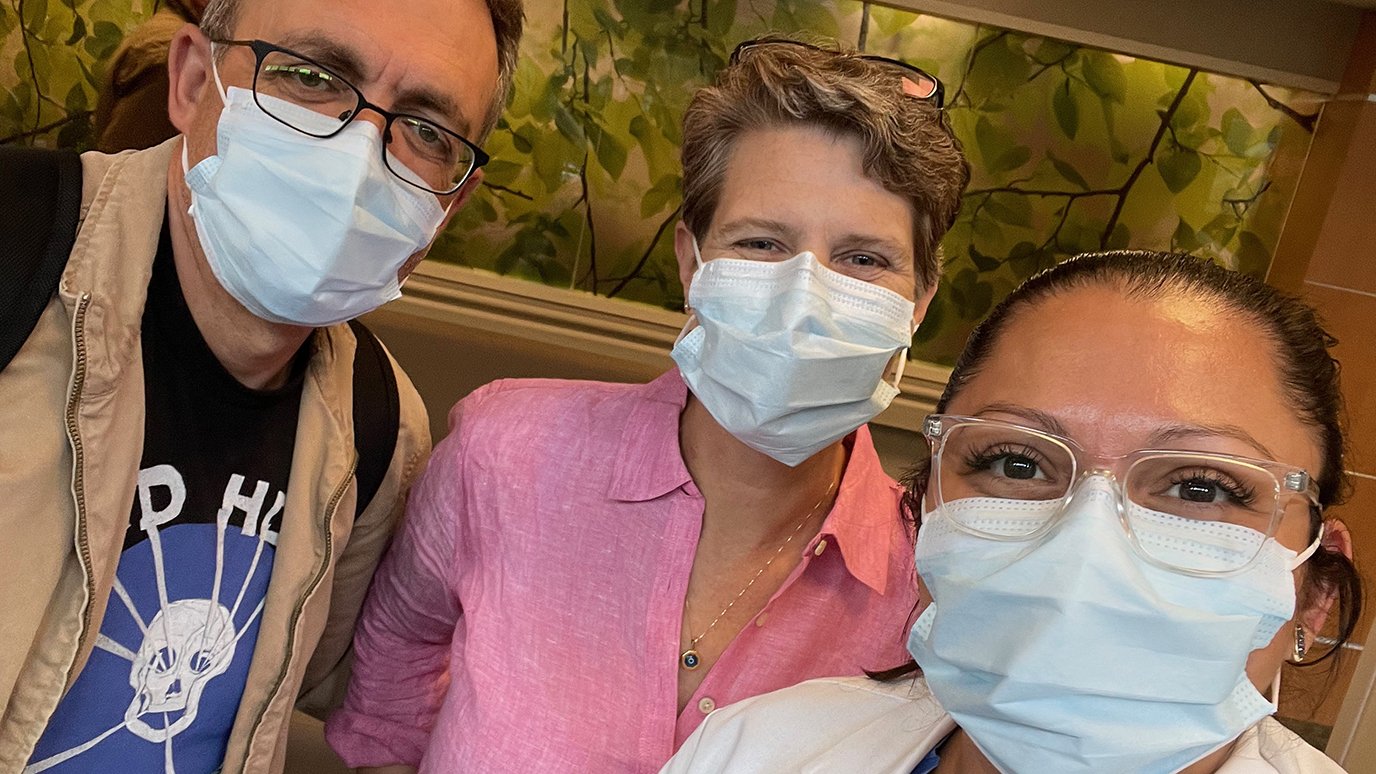- Diseases
- Acoustic Neuroma (14)
- Adrenal Gland Tumor (24)
- Anal Cancer (68)
- Anemia (2)
- Appendix Cancer (16)
- Bile Duct Cancer (26)
- Bladder Cancer (72)
- Brain Metastases (28)
- Brain Tumor (232)
- Breast Cancer (714)
- Breast Implant-Associated Anaplastic Large Cell Lymphoma (2)
- Cancer of Unknown Primary (4)
- Carcinoid Tumor (8)
- Cervical Cancer (158)
- Colon Cancer (166)
- Colorectal Cancer (116)
- Endocrine Tumor (4)
- Esophageal Cancer (44)
- Eye Cancer (36)
- Fallopian Tube Cancer (8)
- Germ Cell Tumor (4)
- Gestational Trophoblastic Disease (2)
- Head and Neck Cancer (12)
- Kidney Cancer (128)
- Leukemia (342)
- Liver Cancer (50)
- Lung Cancer (286)
- Lymphoma (278)
- Mesothelioma (14)
- Metastasis (30)
- Multiple Myeloma (100)
- Myelodysplastic Syndrome (60)
- Myeloproliferative Neoplasm (4)
- Neuroendocrine Tumors (16)
- Oral Cancer (100)
- Ovarian Cancer (172)
- Pancreatic Cancer (160)
- Parathyroid Disease (2)
- Penile Cancer (14)
- Pituitary Tumor (6)
- Prostate Cancer (146)
- Rectal Cancer (58)
- Renal Medullary Carcinoma (6)
- Salivary Gland Cancer (14)
- Sarcoma (238)
- Skin Cancer (296)
- Skull Base Tumors (56)
- Spinal Tumor (12)
- Stomach Cancer (64)
- Testicular Cancer (28)
- Throat Cancer (92)
- Thymoma (6)
- Thyroid Cancer (96)
- Tonsil Cancer (30)
- Uterine Cancer (80)
- Vaginal Cancer (16)
- Vulvar Cancer (20)
- Cancer Topic
- Adolescent and Young Adult Cancer Issues (20)
- Advance Care Planning (10)
- Biostatistics (2)
- Blood Donation (18)
- Bone Health (8)
- COVID-19 (362)
- Cancer Recurrence (120)
- Childhood Cancer Issues (120)
- Clinical Trials (630)
- Complementary Integrative Medicine (22)
- Cytogenetics (2)
- DNA Methylation (4)
- Diagnosis (232)
- Epigenetics (6)
- Fertility (62)
- Follow-up Guidelines (2)
- Health Disparities (14)
- Hereditary Cancer Syndromes (126)
- Immunology (18)
- Li-Fraumeni Syndrome (8)
- Mental Health (116)
- Molecular Diagnostics (8)
- Pain Management (62)
- Palliative Care (8)
- Pathology (10)
- Physical Therapy (18)
- Pregnancy (18)
- Prevention (914)
- Research (392)
- Second Opinion (74)
- Sexuality (16)
- Side Effects (604)
- Sleep Disorders (10)
- Stem Cell Transplantation Cellular Therapy (216)
- Support (402)
- Survivorship (320)
- Symptoms (182)
- Treatment (1786)
Intrathecal pain pump improves pancreatic cancer patient’s life
BY Lauren Rose
3 minute read | Published September 26, 2024
Medically Reviewed | Last reviewed by Jason Willis, M.D., Ph.D., and Matthew Chung, M.D., on September 26, 2024
In 2021, J. David Garrett, Ph.D., began to experience pain in his upper abdomen and back. He initially blamed it on acid reflux. When the pain started to affect his daily activities, his wife, Ruth, encouraged him to see his doctor.
David’s doctor conducted several tests, but the results showed nothing serious. His doctor suggested a CT scan and MRI.
Later that day, David’s doctor called to tell him there was a large mass on his pancreas. A biopsy confirmed it was pancreatic cancer.
Choosing MD Anderson for pancreatic cancer treatment
When deciding where to receive treatment, David immediately thought of MD Anderson. He’d worked for 40 years as a medical speech pathologist and had done some work with MD Anderson, so he knew it was a top choice for cancer care.
“They haven't changed in 40 years; they’re still the best,” David says. “They're leading cancer research and know about the latest treatments.”
After working with MD Anderson many years ago, David’s first appointment felt like a homecoming. He met with oncologist Jason Willis, M.D., Ph.D., during his initial visit. Through additional testing at MD Anderson, David learned that his tumor was in the belly of the pancreas and had wrapped around the superior mesenteric and celiac arteries. That meant surgery was not an option.
David’s treatment plan consisted of chemotherapy, radiation and a clinical trial to manage his pancreatic cancer. In addition to Willis, David also received care from gastroenterologist Manoop Bhutani, M.D., radiation oncologist Grace Li Smith, M.D., Ph.D., pain specialist Larry Driver, M.D., and pain specialist Matthew Chung, M.D.
After a year of treatment, David was in partial remission for eight months. He still had cancer, but his blood counts had reached normal levels. Then, in December 2023, David’s blood counts began to increase again. He would need to have ongoing chemotherapy.
Intrathecal pain pump improves quality of life
Since his initial diagnosis, David has suffered from pain caused by the tumor. He tried prescription pain medications, but they never seemed to eliminate the pain.
Driver had been working with David to help him manage his pain. When David’s pain intensified, Driver referred him to Chung to discuss an intrathecal pain pump.
The round device is about the size of a hockey puck. It is implanted through surgery under the skin on the side of the abdomen. The pump delivers pain medicine directly to the spinal cord and nerves. This direct delivery gives strong pain relief using a much lower dose than pills or injections, which can become diluted as they go through the body.
The surgery to implant a pain pump requires some form of anesthesia. Based on David's medical history, he would need to undergo general anesthesia. After considering his options with his family, David moved forward with the surgery.
He now takes a non-opioid medication that is only available through a pump. It not only helps with his tumor pain but also his neuropathy pain. He visits MD Anderson every three months to refill the pump and every two weeks for chemotherapy.
Since having a pain pump, David has been thriving. His wife has noticed a positive change in his well-being. Before the pain pump, David could barely get out of bed. But now he’s able to garden and complete yard work. “For people with constant cancer pain who want a better quality of life, this is a procedure to consider and discuss with your doctor,” he says.
David takes life one day at a time and is thankful his pain pump allows him to focus on living life to the fullest.
“What’s going on inside my body isn't pretty,” David says. “But my pain pump has allowed me to tend to the flowers in my garden and enjoy the beautiful things in life.”
Request an appointment at MD Anderson online or call 1-877-632-6789.
Related Cancerwise Stories

For people with constant cancer pain, this is a procedure to consider.
J. David Garrett, Ph.D.
Survivor





